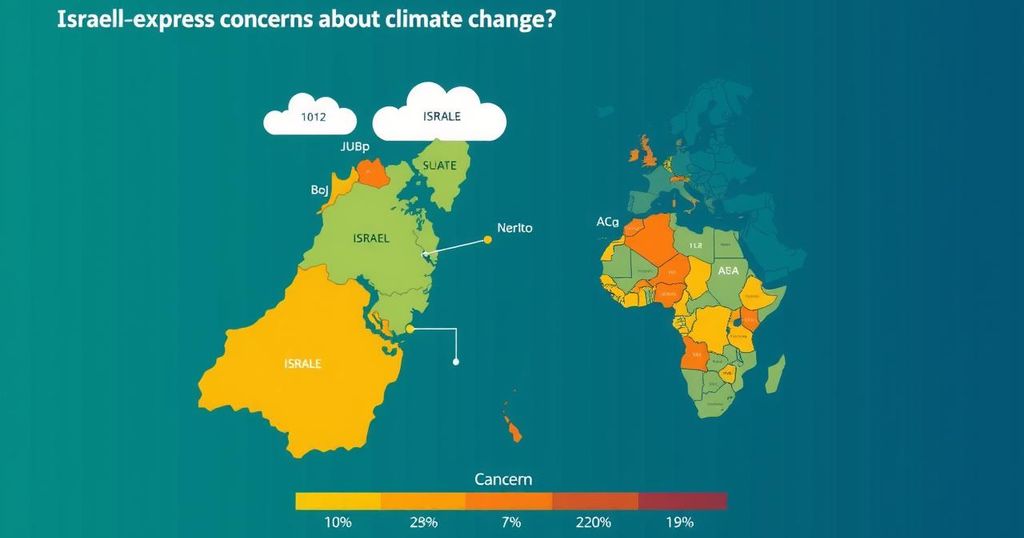A survey from Ben Gurion University indicates that 77 percent of Israelis are worried about climate change. Many participants are willing to alter their habits for environmental reasons. Trust in scientific information about climate change is significant, with women showing greater concern than men. The findings suggest a need for policies addressing climate change and enhancing public engagement.
A recent survey conducted by Ben Gurion University revealed that 77 percent of Israelis express concern about climate change. The study, which involved 1,180 participants between June 26-30, found that many respondents are willing to make lifestyle changes for environmental protection. Specifically, 36 percent indicated a readiness to reduce meat consumption, 33 percent showed interest in increasing public transportation usage, and 24 percent were open to less frequent flying. Furthermore, the survey indicated a strong trust in scientific insights regarding climate change, with 63 percent of participants affirming their belief in the credibility of scientists. Notably, gender differences emerged, as 85 percent of women reported anxiety over air pollution compared to 69 percent of men, with women generally more inclined to endorse policies aimed at mitigating climate change and adjusting their own behaviors accordingly.
Climate change is a pressing global issue, affecting ecosystems, weather patterns, and human health. Awareness and concern about climate change have been rising among populations worldwide, including in Israel. Surveys that gauge public sentiment play a crucial role in understanding how communities perceive environmental issues and their willingness to adopt sustainable practices. This particular survey by Ben Gurion University sheds light on the Israeli public’s attitudes towards climate change, revealing significant insights into gender disparities and the overall trust in scientific expertise on the matter.
The survey highlights a notable concern amongst Israelis regarding climate change, with a majority willing to adapt their habits for environmental betterment. Gender differences in perspectives suggest that women are more proactive in advocating for climate policies and altering their behavior. Moreover, the high level of trust in scientific credibility underscores the importance of science communication in addressing climate-related concerns.
Original Source: www.socialnews.xyz






